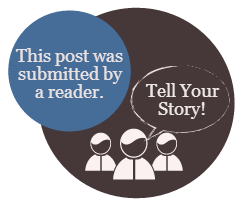
by Philip A. Kumin
For anyone privy to the dynamics of the discussion surrounding the manifest destiny of the mental patients’ movement one thing is clear; those founding activists who survive are aggrieved at the loss of their native movement. In almost any venue in which these activists air their grievances, there is an aggregate atmosphere of nostalgia and bitterness. The perceived loss of vitality of this movement of the 1970’s is mourned. For sure, that decade was a landscape fertile for the launching of social movements, including one of deinstitutionalized and disgruntled mental patients. What then comes next?
If the psychiatric inmates’ movement was new, raw, and vital back then, it is diverse and modern today. Inevitably, and of necessity, the ranks of this movement have swelled and the exteriors of 1960’s and ’70’ s radicalisms have dissipated. This evolution does not preclude authenticity, however. It was exciting to be in the midst of a new, moral imperative which fired activists to a frenzy, and it can be this way again. What I’m saying here is that the appeal of ex-inmate activism had at least as much to do with the era in which it occurred as it did the substance of the grievances.
To clarify things even further, when we talk about the vitality of the patients’ movement in the 1970’s what comes to mind is the rage with which activists delineated their complaints. These complaints were intertwined with styles of protest popular in the 1970’s, styles which have changed since then. It may be that surviving veteran activists mistake differences in style for a dearth of fervor on the part of today’s generation of antipsychiatry activists. I don’t believe this to be true at all as the mental health system of today revolves just as tightly around the flawed medical model paradigm as it was doing in the 1970’s. Patients unquestionably continue to suffer.
In 1978, activist Judi Chamberlin wrote her book, On Our Own: Patient Controlled Alternatives to the Mental Health System. The book articulated and codified the philosophies of the mental patients’ movement and became, in effect, a bible thereafter. In 2019, we are seeing embellishments and implementations of the blueprint therein.
One such development has sprung from the fact that in contrast to the 1970’s, it is now more practical for mental patients to attend school and acquire college educations. Indeed, there is a growing pool of graduates who are former inmates. From the antipsychiatry movement’s point of view, it’s also an established fact that the results of any scientific studies dealing with mental health issues which are conducted by researchers who are not themselves former patients, are skewed in favor of the Establishmentarian medical model point of view. Because those researchers have a lot of academic credentialing and respectability, what they announce is instantly believed and accepted by the public.
Former inmate, Dr. Nev Jones, a researcher at the University of South Florida, is one such beneficiary of the new access to an academic life for former mental patients. Dr. Jones is now spearheading an effort to encourage other patients who are considering grad school to become researchers too. The intent of this plan is to accrue a pool of researchers who are former patients, who will then counter the opportunistic distortions of non-patient researchers.